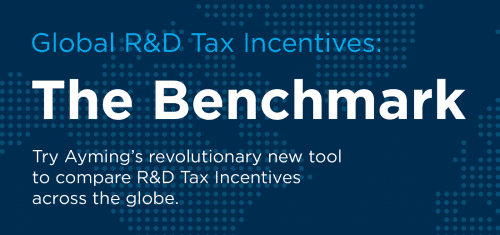In response to the global challenges of climate change, among other issues, in 2017 the European Union introduced the NFRD, aimed at increasing transparency on environmental, social and corporate governance activities of large companies.
From 2024, the NFRD will be replaced by the CSRD in order to standardise and improve the quality of reports
The new legislation aims not only to increase the number of companies reporting on their sustainability performance, but also to make this information more comparable at the European level. The timetable introduced provides for the gradual inclusion of further groups of companies in the reporting obligation. Moreover, the impact of these regulations will reach far beyond the companies initially covered. Companies covered by the new regulations will expect their suppliers to adhere to certain standards, with a consequent spread of these requirements throughout the market.
The implementation of ESG reporting will therefore soon become mandatory for a large part of the market
Check the timetable for the implementation of the CSRD for different types of companies
What is ESG?
ESG is an acronym for three key factors in the non-financial assessment of companies: Environment (E – Environment), Social Responsibility (S – Social) and Governance (G – Governance).
In response to growing expectations from communities, shareholders and investors, more countries are making ESG reporting mandatory. Even companies not covered by the requirements see the value in doing so, underlining their commitment to sustainability.
It’s best to start preparing for the entry into force of the new regulations today.
This means carrying out a transformation in your company to modify your CSR activities into relevant ESG indicators in line with the latest CSRD
Our comprehensive support will structure management of the ESG area within the company and address all its current needs
Responding to current needs
- CARBON FOOTPRINT
We carefully analyse a company’s activities by collecting various types of data, which we then convert into the resulting greenhouse gas emissions. When calculating an organisation’s carbon footprint, we systematically include scopes 1, 2 and 3. This provides a comprehensive picture of a company’s climate impact. The final results are presented in a form that complies with current regulatory requirements, ready for publication. - REDUCING CO2 EMISSIONS
We carry out an in-depth analysis of the carbon footprint. Based on the information obtained, we formulate concrete proposals for short-, medium- and long-term actions and propose an emission reduction path in line with the guidelines of the Science-Based Targets initiative (SBTi). In addition, we offer the unique opportunity for these recommendations to be verified by the SBT organisation itself, ensuring their highest quality and compliance with current standards. - ACQUISITION OF CERTIFICATES
Our aim is to ensure that the company meets all the requirements and standards to obtain the desired sustainability certifications and awards. We tailor the type of support to the individual needs of the company. We help acquire certifications such as EcoVadis, B-Corp, Science-Based Targets (SBT) and Carbon Disclosure Project (CDP), among others. - OTHER
We tailor our support to respond to the client’s current needs – from participating in tenders to developing documentation, to raising finance.
Structuring and management in the ESG domain
- FULL ESG DIAGNOSTICS
A key step in our approach is a deep dual materiality analysis that allows us to understand the impact of various factors on the company’s operations and the company’s impact on society and the environment. We then select from more than 500 available indicators those that are key to the specifics of the organisation. During the next step, we look at how the company complies with the applicable ESG regulations and identify any gaps. All this leads to the development of a robust reporting strategy for the current year’s activities and over the long term. - IMPACT ASSESSMENT
We collect data and calculate the carbon footprint. We analyse the company’s environmental impact, taking into account pollution, water management and biodiversity. We collect indicators on working conditions, employee safety, corporate culture, anti-corruption mechanisms and relations with service providers. - DIRECTION AND ACTION PLAN
We determine the direction of emission reductions and prepare a coherent action plan for inclusion in the non-financial report. In addition, we review the CSR Policy for consistency with the company’s current activities. - CSRD-COMPLIANT SUSTAINABILITY REPORT
We prepare a thorough non-financial report, focusing on issues that are key to the company. We monitor the set ESG directions. In addition, we carefully evaluate the effectiveness of implemented measures to confirm their effectiveness and real benefits for the organisation. If required, we also provide a sustainability report, a CSR Policy, which is a compendium of the company’s CSR activities, and we assist in the development of an inclusivity policy and a code of ethics, which are the foundations of responsible business activity.
What sets us apart
Speed and efficiency
We focus on ESG aspects that really matter to the business. We work with hard, quantifiable data. We operate dynamically and the high-quality of our work is further enhanced by generative AI technology and an exchange of expertise and experience between Ayming’s various divisions around the world.
International involvement
We are firmly established in European markets. We draw on best practice and thorough benchmarking at various levels – local, international or industry. All this is designed to deliver the optimal solutions for our clients.
Support for funding ESG investments
With our experience in raising finance, we help companies raise the necessary funds to accelerate the ESG transformation of their business
Should you implement ESG in your company? 10 times YES!
1. Regulatory requirements
According to the European CSRD, companies are already obliged to prepare non-financial reports under new, stricter rules from 1 January 2024.
2. Funding and investors
Banks and investment funds are assessing clients for sustainability. Companies that do not meet ESG criteria are finding it increasingly difficult to obtain bank financing. In turn, investors are increasingly selecting entities for their portfolios based on ESG ratings.
3. Tendering and public financing
Participating in tenders or applying for public funding increasingly requires companies to meet sustainability criteria and social and environmental commitment.
4. Saving energy and resources
With rising energy costs and declining resource availability, optimal management of this area has real economic benefits.
5. Risk reduction
Many risks are considered in ESG, including physical, regulatory, technological or reputational risks. Managing them is crucial for the future of the company.
6. Verification of the value chain
Measuring, controlling and improving the environmental and social impact of a company’s value chain is essential to maintaining business competitiveness.
7. Strengthening the employer brand
Socially engaged organisations attract top talent from the market and retain the best employees.
8. Company reputation
The fight against climate change, environmental policy and the social responsibilities of business are topics of great interest and subject to ongoing public evaluation.
9. Ethics
Commitment to combating climate change is a moral obligation for companies.
10. Positive impact
Climate, environmental and social action is no longer optional. The future belongs to those who know how to ensure the sustainability of their business.
CSRD – who is affected and from when?
500+ companies
Subject to the NFRD and meeting one of two criteria: EUR 20M in balance sheet or EUR 40M in revenue.
Financial year: 2024
Reporting year: 2025
Companies 250+
Not subject to NFRD, meeting one of two criteria: EUR 20M in balance sheet or EUR 40M in revenue.
Financial year: 2025
Reporting year: 2026
SMEs
Listed companies that meet two of three criteria: >10 employees, a balance sheet of EUR 350,000 or a turnover of EUR 700,000. Credit institutions.
Financial year: 2026
Reporting year: 2027


